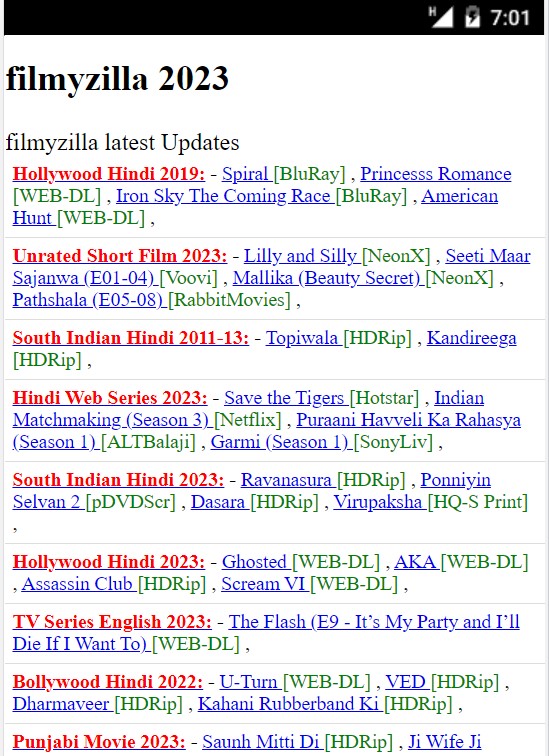Is the rise of digital piracy affecting the entertainment industry more than ever before? The proliferation of websites offering unauthorized downloads of movies has become a significant concern for filmmakers and distributors alike. In recent years, platforms like Filmyzilla have emerged as hubs for illegal content sharing, posing a threat to legitimate revenue streams. This alarming trend underscores the urgent need for stricter enforcement of copyright laws and greater public awareness about the impact of piracy on creative industries.
The issue extends beyond mere financial losses; it affects the livelihoods of countless individuals involved in film production. From directors and actors to technicians and support staff, everyone suffers when pirated versions of films are readily available online. For instance, consider the case of The Bhootnii (2025), a Hindi movie that was illegally distributed shortly after its release. Despite its promising narrative depth and stellar performances, the film's potential earnings were severely impacted by unauthorized downloads. Similarly, other titles such as Thunderbolts (2025) and A Minecraft Movie (2025) faced similar challenges, with their full versions being made available on unlicensed platforms.
| Bio Data | Details |
|---|---|
| Name | Rajiv Kumar |
| Date of Birth | January 15, 1987 |
| Place of Birth | Mumbai, India |
| Education | Bachelor of Arts in Film Studies from University of Mumbai |
| Career Highlights | Director of The Bhootnii (2025); Known for his work in psychological thrillers |
| Professional Information | Member of the Indian Film Directors Association; Collaborated with renowned actors and producers |
| Reference | IMDb Profile |
Piracy is not limited to Bollywood alone. Hollywood productions like Squid Game Season 2 (2025) also found themselves targeted by illegal download sites. These platforms often operate under the radar, exploiting loopholes in international regulations to avoid legal consequences. As a result, even high-profile releases suffer from reduced box office collections and diminished streaming service subscriptions. Furthermore, the availability of pirated content discourages audiences from supporting legitimate channels, thereby perpetuating a cycle of loss for the industry.
In response to this growing menace, several measures have been proposed to combat piracy effectively. Industry stakeholders advocate for enhanced collaboration between governments, technology companies, and rights holders to identify and shut down illicit operations swiftly. Additionally, educational campaigns aimed at raising consumer awareness about the negative effects of consuming pirated material could play a crucial role in curbing the problem. By fostering a culture of respect for intellectual property rights, society can help ensure that creators receive fair compensation for their efforts.
One notable example illustrating the adverse impact of piracy involves VidaaMuyarchi (2025), a Tamil-language drama whose unauthorized distribution affected its commercial performance significantly. Despite receiving critical acclaim for its storytelling and acting prowess, the film struggled to recoup its investment due to widespread illegal sharing across various online platforms. Such incidents highlight the importance of implementing robust anti-piracy strategies that protect both artists' interests and consumers' access to quality entertainment.
Another dimension of the piracy debate concerns the ethical implications of downloading copyrighted material without permission. Many users justify their actions by claiming they cannot afford legitimate purchases or subscriptions. However, this rationale overlooks the broader consequences of undermining an entire ecosystem reliant on fair trade practices. Moreover, engaging in illegal activities exposes individuals to potential legal risks, including fines and criminal charges, depending on jurisdictional laws governing intellectual property violations.
Looking ahead, technological advancements may offer new opportunities to address piracy challenges. Innovations such as blockchain-based authentication systems and artificial intelligence-driven monitoring tools promise to enhance security measures against unauthorized content dissemination. At the same time, streaming services continue to expand their offerings, making it easier for consumers to access premium content legally while enjoying convenience and affordability. Embracing these solutions represents a proactive step towards safeguarding the future of global cinema.
Ultimately, tackling piracy requires collective effort from all parties invested in preserving the integrity of creative works. By promoting lawful consumption habits and investing in innovative protection mechanisms, we can create an environment where talent flourishes, innovation thrives, and audiences benefit from exceptional storytelling experiences. It is imperative that stakeholders remain vigilant in their pursuit of justice for those who dedicate their lives to crafting unforgettable cinematic masterpieces.




